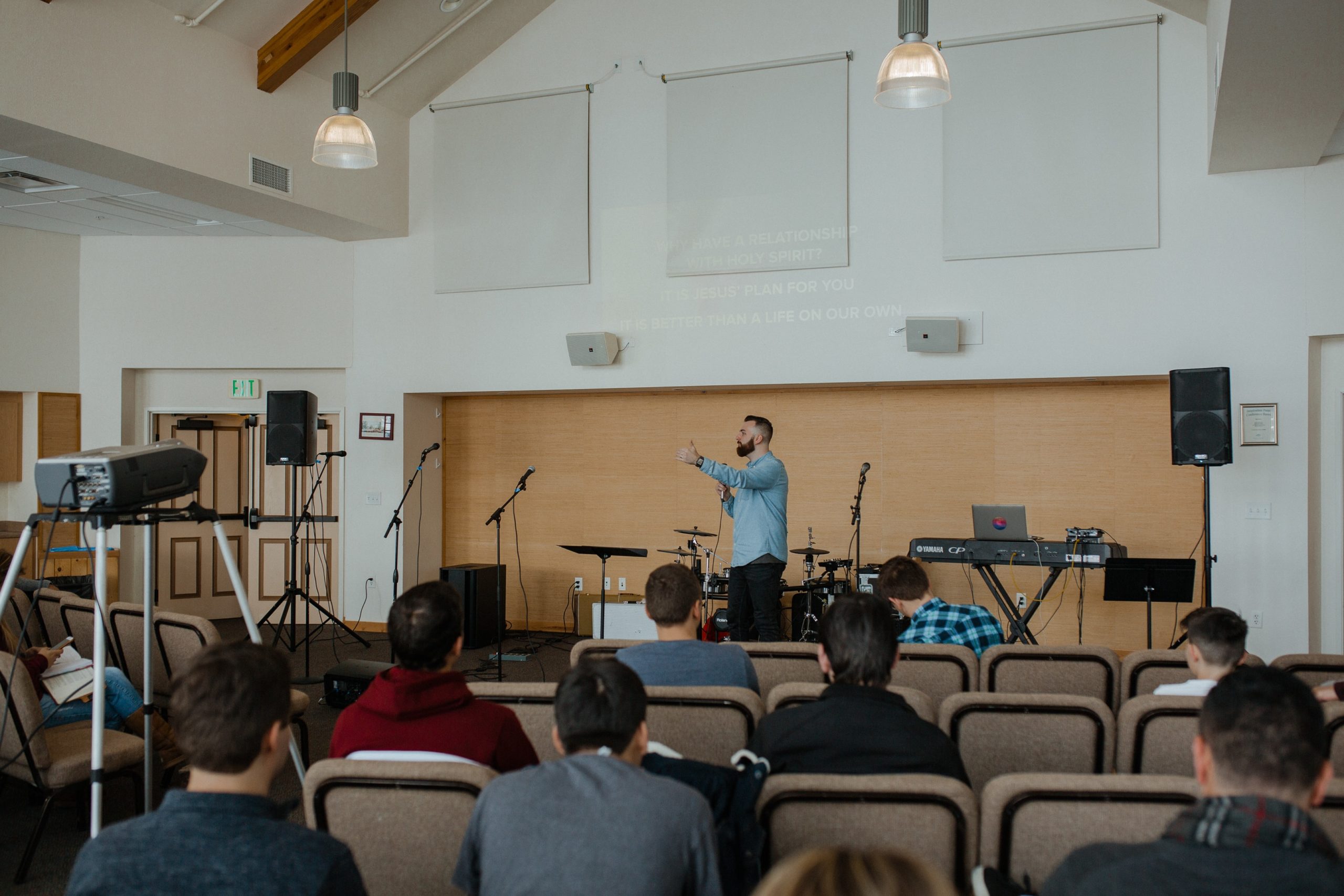How do we hold leaders accountable? This can be a difficult topic to navigate especially when we are called to hold our leaders in high esteem. It becomes harder still when there is a history of leaders abusing the biblical command to honour them. Whilst leaders have a vital role within the body of Christ, this role is not a superior one. Leaders, like the rest of the body of Christ, must submit to the Lordship of Jesus. Moreover, they must mutually submit to all those who name the name of Christ. Leaders are for our benefit and we should want them to do well in their roles, thus holding them accountable is necessary to the maintenance of the holy standards God requires of them. So, how do we hold leaders accountable?
Why we need Leaders?
Whilst this is not an article on the importance of leadership, it is vital to understand what leadership is and why it’s necessary, so we can accurately define how we ought to hold leaders accountable. For the purposes of this article, I’ll define leadership as ‘any person(s) appointed by an organisation to preside over a people‘ and it will be primarily focused on Christian leaders. In the Bible, there are different kinds of Christian leaders: from prophets and judges to kings and pastors, whilst each role occurred at various times during human history, each had the same focus – to lead the people of God in the ways of God.
All leaders are appointed by God (Romans 13:1). Since they are appointed by God, to rebel against leaders is to rebel against God (Romans 13:2). These appointed leaders are commanded by God to care for those they lead (Romans 13:4-6), whilst those within the local church are additionally required to equip the saints for ministry (Ephesians 4:11-15). Consequently, the definition for a leader we receive from scripture is one of servitude, not of domination. However, leaders, like the rest of us, are fallible and are susceptible to temptation that can lead to sin. Whilst sin can happen in isolation, its effects never remain such. Sin is pervasive and its effects are extremely damaging, the effects appear grander when a leader falls. Sin can occur when there is a lack of accountability, and when accountability lacks, especially amongst leaders, the results are detrimental. Accountability protects and serves both the leader and those in their care.

Leaders need accountability
In the new testament, we consistently see a plurality of leaders being employed when leadership is required. Whether it is the formation of 12 apostles (Matthew 10:2-4, Mark 3:13-19, Luke 6:12-16), or of deacons (Acts 6), or reference to elders (1 Peter 5:1-2), we continuously see leaders established in groups. Furthermore, these elders that are employed in their roles have particular qualifications that they must meet. This acts as a safeguard for those who would be leaders and those who would be under them, what should be expected and what to expect.
In 1 Peter 5, the Apostle Peter begins the chapter by exhorting elders to take care of the flock of Christ with all joy and humility and not under compulsion (1 Peter 5:1-2). Verse 3 illuminates that the responsibility of leaders is to be ‘examples to the flock’. The qualifications outlined in 1 Timothy 3:1-7 & Titus 1:5-9 are the qualities that leaders are supposed to exemplify. This is how the flock are able to hold their leaders to account. Leaders aren’t called to act rogue or create such a separation from the rest of the body of Christ that no one is aware of their actions. Rather, the role of the leader is to serve their Lord (Jesus) and the sheep. Since God selects those who would be a leader, and what such leaders should be, how can we, as the flock, ensure that our leaders lead as they should?

What should accountability look like?
Accountability is not the flock policing every single action that the leader makes nor is it fellow elders devising a plan to ensure a more senior leader follows their purposes. Instead, accountability acts as a spiritual guardrail for leaders and flock alike, to ensure that they are not hardened by the deceitfulness of sin (Hebrews 3:13). Thus here are some suggestions to how we can hold our leaders accountable:
1) Leaders are for you. I think this is the primary place to begin. Now, this can be viewed from a selfish position. Guard against that. Leaders are not erected by God to answer to every beck and call of the flock, instead God sovereignly chooses leaders to serve the flock that they may treasure Christ. It is our business that they do a good job.
2) Sin is pervasive. I fear that the issue we see in 1 Corinthians 5, occurs in our current Christian climate. Sin is not just an individualistic issue. Paul says ‘do you not know that a little leaven leavens the whole lump’ (1 Corinthians 5:6). Sin shouldn’t be ignored, lest it should spread throughout the body. If you see sin either present or with the potential to appear, it is your responsibility to alert the elders to the potential or current sin in the leader.
3) Church discipline. This point elaborates on the previous one. Find out whether your church or Christian organisation has a disciplined structure and if they don’t, ask why not? One of the clearest descriptions of church discipline is found in Matthew 18:15-17. We see here the step-by-step instructions given by Jesus on how to manage the discipline of a person caught in sin.
4) God’s glory. It is for God’s glory that God’s leaders shepherd God’s sheep well. Christ is the great shepherd (Hebrews 13:20). Jesus tells Peter, “if you love me feed my sheep” (John 21:15-17) and this is what He expects of leaders. When leaders to look after the sheep well, it will help the flock see how the great Shepherd ultimately looks after them well. This is why we need good leaders, God’s glory is at stake.
Holding leaders accountable can be intimidating. Accountability is not a work to do alone, instead it is a corporate work that primarily occurs in a local setting for the benefit of both the local and the global body. Having good leaders is for our good and God’s glory. We should desire that our leaders live holy lives both publicly and privately so that God’s name or His body would not be under reproach. Holding our leaders to account is not moderating their behaviour by some subjective standard but by lovingly ensuring that they remain within the guardrails Christ has given for their good.
Leaders we need you to be good at what you do, not just in competence but also in character. Therefore receive the accountability that is made available to you, because at the end, God promises that there is an ‘unfading crown of glory’ that awaits (1 Peter 5:4).
*(Read more here https://www.ourgodgivenmission.com/the-lost-art-of-honour-in-the-21st-century-how-do-we-display-honour-today)